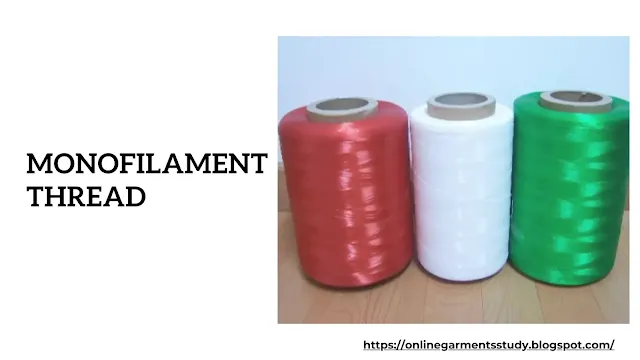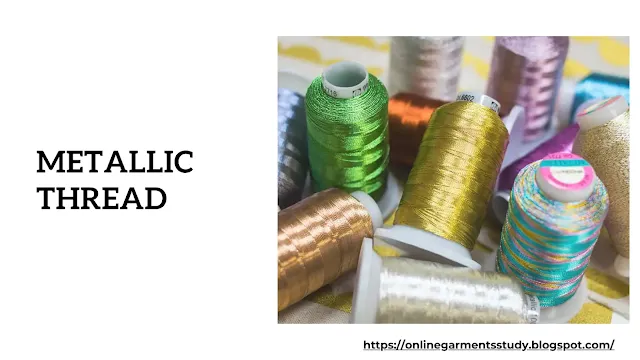A Comprehensive Guide to Industrial Sewing Threads: Types and Real-Life Applications in the Garment Industry
A Comprehensive Guide to Industrial Sewing Threads: Types and Real-Life Applications in the Garment Industry
Introduction
In the vast and intricate world of garment manufacturing, choosing the right materials and tools is crucial to ensure quality and durability. One such essential component is the industrial sewing thread. Industrial sewing threads are specifically designed to withstand the rigors of heavy-duty sewing and provide reliable stitching for various applications. In this blog post, we will explore the different types of industrial sewing threads available and delve into their real-life uses in the garment industry.
7 Types of Industrial Sewing Thread
1. Polyester Thread
2. Nylon Thread
3. Cotton Thread
4. Silk Thread
5. Upholstery Thread
6. Monofilament Thread
7. Metallic Thread
1. Polyester Thread
Polyester thread is one of the most commonly used threads in the garment industry due to its exceptional strength and durability. It possesses high tensile strength, making it suitable for sewing fabrics that require long-lasting stitching. Polyester threads also have excellent resistance to chemicals, abrasion, and sunlight, making them ideal for outdoor apparel, sportswear, and upholstery. For instance, when stitching a heavy-duty jacket made of thick denim fabric, polyester thread provides the necessary strength to endure constant stress and strain.
2. Nylon Thread
Nylon thread is another popular choice in the garment industry, known for its exceptional strength and elasticity. It offers excellent resistance to mildew, rot, and chemicals. Nylon threads are commonly used in the production of swimwear, lingerie, and other stretchable fabrics due to their superior elasticity. For example, when sewing a one-piece swimsuit made of stretchable fabric, nylon thread ensures the stitches can withstand the garment's frequent stretching without snapping or breaking.
3. Cotton Thread
Cotton thread, as the name suggests, is made from natural cotton fibers. It is primarily used for sewing lightweight and delicate fabrics. Cotton thread is soft, flexible, and offers good heat resistance. It is often utilized in sewing cotton garments, linens, and lightweight dresses. For instance, when stitching a delicate cotton blouse, cotton thread provides a soft and gentle touch while ensuring the fabric's integrity.
4. Silk Thread
Silk thread is renowned for its luxurious appearance and softness. Although not as strong as polyester or nylon, silk thread offers excellent sewability and is commonly used for high-end garments and delicate fabrics. It is popularly employed in sewing wedding dresses, evening gowns, and other couture garments where aesthetics and delicacy are paramount. The shimmer and elegance of silk thread add a touch of luxury to these intricate creations.
5. Upholstery Thread
Upholstery thread is specifically designed for heavy-duty stitching in upholstery and home furnishing applications. It is made from synthetic materials like nylon or polyester and is incredibly strong to withstand the weight and stress placed on furniture seams. Upholstery thread is ideal for sewing sofas, chairs, cushions, and other fabric-based furniture items. Its superior strength ensures that the seams stay intact even under significant pressure.
6. Monofilament Thread
Monofilament thread is a unique type of thread made from a single continuous strand of nylon or polyester. It is transparent or translucent and is often used for invisible stitching or hemming. Monofilament thread blends well with a variety of fabrics and is especially useful when sewing lightweight or sheer fabrics. For instance, when attaching lace trim to a delicate evening gown, monofilament thread offers a discreet and seamless finish.
7. Metallic Thread
Metallic thread, as the name suggests, is infused with metallic elements such as aluminum or silver. It adds a touch of glamour and shine to garments, making it popular for decorative stitching, embroidery, and topstitching. Metallic thread is often used in the fashion industry to create eye-catching details on evening gowns, dance costumes, and festive attire.
Conclusion
Choosing the right type of industrial sewing thread is essential to ensure the longevity and quality of garments. Polyester, nylon, cotton, silk, upholstery, monofilament, and metallic threads each have their unique properties and applications in the garment industry. Understanding their characteristics and uses enables manufacturers and designers to select the most suitable thread for their specific needs. By making informed choices, garment makers can create products that not only look aesthetically pleasing but also stand the test of time.
Remember, whether you're sewing a heavy-duty jacket, a delicate dress, or a luxurious evening gown, the right thread can make all the difference in achieving a flawless and durable end result. So, choose wisely and let your garments speak volumes through the strength and precision of their stitching!
FAQ about Industrial Sewing Thread
Q1: What is industrial sewing thread?
A1: Industrial sewing thread is a specialized type of thread designed for heavy-duty sewing applications in industries such as garment manufacturing, upholstery, and home furnishing. It is stronger and more durable compared to regular sewing thread, ensuring long-lasting and reliable stitching.
Q2: What are the main types of industrial sewing threads?
A2: The main types of industrial sewing threads include polyester, nylon, cotton, silk, upholstery, monofilament, and metallic threads. Each type has its own unique properties and applications based on factors such as strength, elasticity, and appearance.
Q3: What are the advantages of polyester thread?
A3: Polyester thread offers exceptional strength, durability, and resistance to chemicals, abrasion, and sunlight. It is widely used in the garment industry for its ability to withstand heavy stress and strain. Polyester thread is suitable for outdoor apparel, sportswear, and upholstery.
Q4: When should I use nylon thread?
A4: Nylon thread is known for its strength and elasticity. It is particularly suitable for sewing stretchable fabrics such as swimwear and lingerie. Nylon thread provides excellent resistance to mildew, rot, and chemicals, making it a popular choice for garments that require flexibility and durability.
Q5: What are the uses of cotton thread?
A5: Cotton thread is primarily used for sewing lightweight and delicate fabrics. It offers good heat resistance and is often used in sewing cotton garments, linens, and lightweight dresses. Cotton thread provides a soft and gentle touch while maintaining the fabric's integrity.
Q6: In which applications is silk thread commonly used?
A6: Silk thread is renowned for its luxurious appearance and softness. It is commonly used in high-end garments, couture creations, and delicate fabrics. Silk thread adds a touch of luxury and elegance to wedding dresses, evening gowns, and other intricate designs.
Q7: What is upholstery thread used for?
A7: Upholstery thread is designed for heavy-duty stitching in upholstery and home furnishing applications. It is exceptionally strong and can withstand the weight and stress placed on furniture seams. Upholstery thread is ideal for sewing sofas, chairs, cushions, and other fabric-based furniture items.
Q8: What is monofilament thread used for?
A8: Monofilament thread is a transparent or translucent thread made from a single continuous strand of nylon or polyester. It is often used for invisible stitching or hemming on lightweight or sheer fabrics. Monofilament thread provides a discreet and seamless finish, blending well with various materials.
Q9: When should I use metallic thread?
A9: Metallic thread is infused with metallic elements and adds a touch of glamour and shine to garments. It is commonly used for decorative stitching, embroidery, and topstitching. Metallic thread is popular in the fashion industry for creating eye-catching details on evening gowns, dance costumes, and festive attire.
Q10: How do I choose the right industrial sewing thread for my project?
A10: When choosing the right industrial sewing thread, consider factors such as the fabric type, desired strength, elasticity, and the application or purpose of the garment. Understanding the characteristics and uses of different thread types will help you make an informed decision and achieve optimal results in your sewing projects.

























No comments